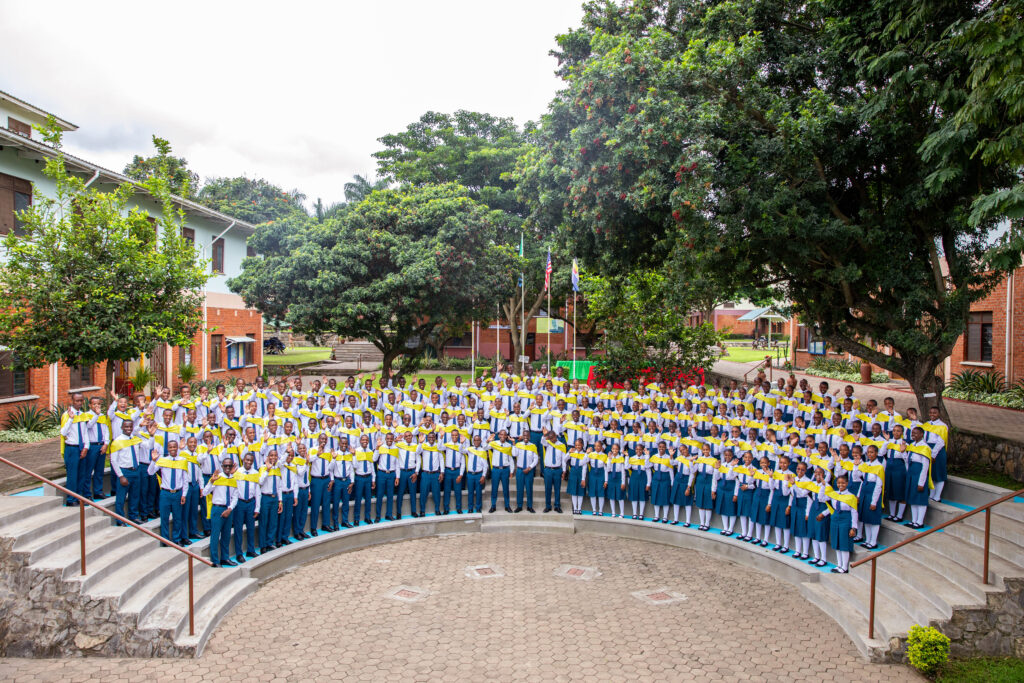
Future doctors, engineers, nurses and entrepreneurs. These were just some of the aspirations echoing around Smith Campus this month as students, sponsors and invited guests came together for one of the most anticipated events on the school calendar: the 11th Form 6 Graduation.
The graduation marks a key milestone in the Tanzanian education system, which is divided into three main stages: seven years of primary school (Standard 1 to 7), four years of secondary school at the Ordinary Level (Forms 1 to 4), and two years of Advanced Level secondary education (Forms 5 and 6).
The School of St Jude hosts three graduation ceremonies annually, corresponding to these three main levels, along with a special celebration for alumni completing tertiary education.
This year, 166 students proudly crossed the stage, bringing the total number of Form 6 graduates to 1,500+ since the first class in 2015.
Attendees enjoyed vibrant cultural performances by current students, tributes to dedicated staff members and reflections on the achievements of the Class of 2025.
A special highlight of the ceremony was a joint address by Angela Bailey, who was St Jude’s first volunteer teacher when the school opened in 2002, and her father, John Bailey, a long-time supporter, current board member and the school’s legal counsel since 1997. He sponsored the scholarship of one of this year’s graduating class.
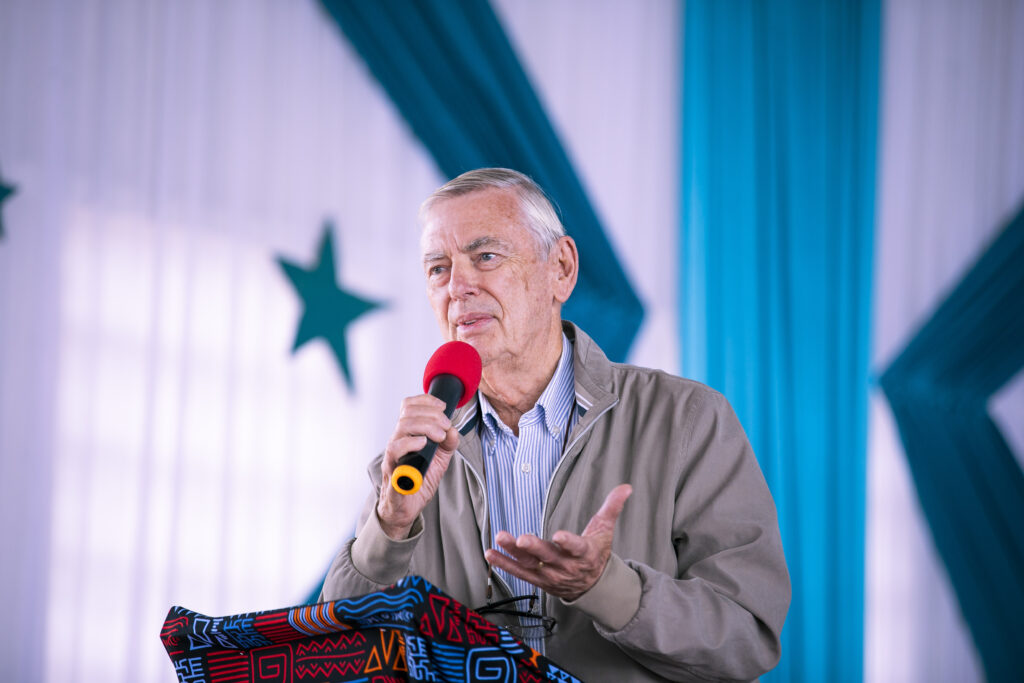
“Life can take you to places you never imagined existed. To our sponsors and donors, we cannot say how much your support has helped us achieve our ambitions. We are grateful,” says Nickson, Form 6 graduate, in his farewell speech on graduation day.
“Our teachers, thank you for all the endless effort that you made towards our performance. Our parents, you have always been our pillars of strength. Thank you for seeing the light that sparkled in us.”
The Class of 2025 had much to be proud of, excelling in various extracurricular activities, particularly debate and public speaking.
Notably, graduate Mwajabu Hoya earned national recognition after winning gold and being named Tanzania’s best public speaker at the National Debate Championships. The school’s debate team also celebrated a major win, earning the title of Best Debate Team in East Africa in 2024.
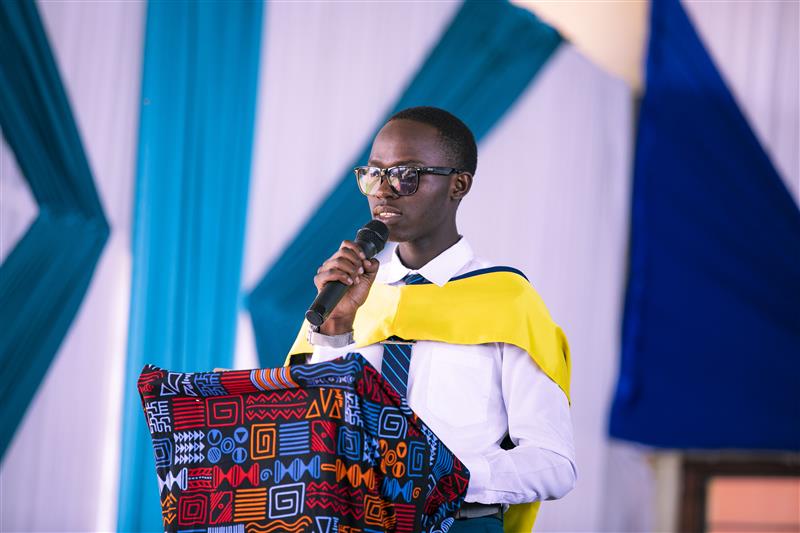
In another milestone, the Class of 2025 became the first in St Jude’s history to receive personal laptops earlier this year, a significant step in supporting their future academic and professional pursuits.
The next stage for graduates is pursuing higher education at various universities and colleges. Many choose to apply to the Beyond St Jude’s Scholarship Program (BSJSP), which supports graduates with tertiary education.
As part of this program, they will undertake community service placements for a year, volunteering as teachers in understaffed government schools, or at various placements throughout St Jude's. Then they go on to access higher education supported by St Jude’s sponsors and donors.
Through the holistic education offered at St Jude’s, the Class of 2025 has been able to reimagine a future filled with endless possibilities – for themselves, their communities and their country.
It’s no secret that the Annual Science Day has become a launchpad for the next generation of innovators, and this year’s event was no exception! Now in its 15th year, the day brought together students to present both individual and group projects that not only highlighted their expertise in science, ICT, and maths, but also provided creative solutions to some of today’s most pressing global challenges.
With nearly half the student body participating, many focused on pioneering renewable energy solutions like solar power and biogas, pushing us closer to a sustainable future.
Take a closer look at the remarkable projects from this year’s Science Day and see how these young innovators are shaping the world of tomorrow.
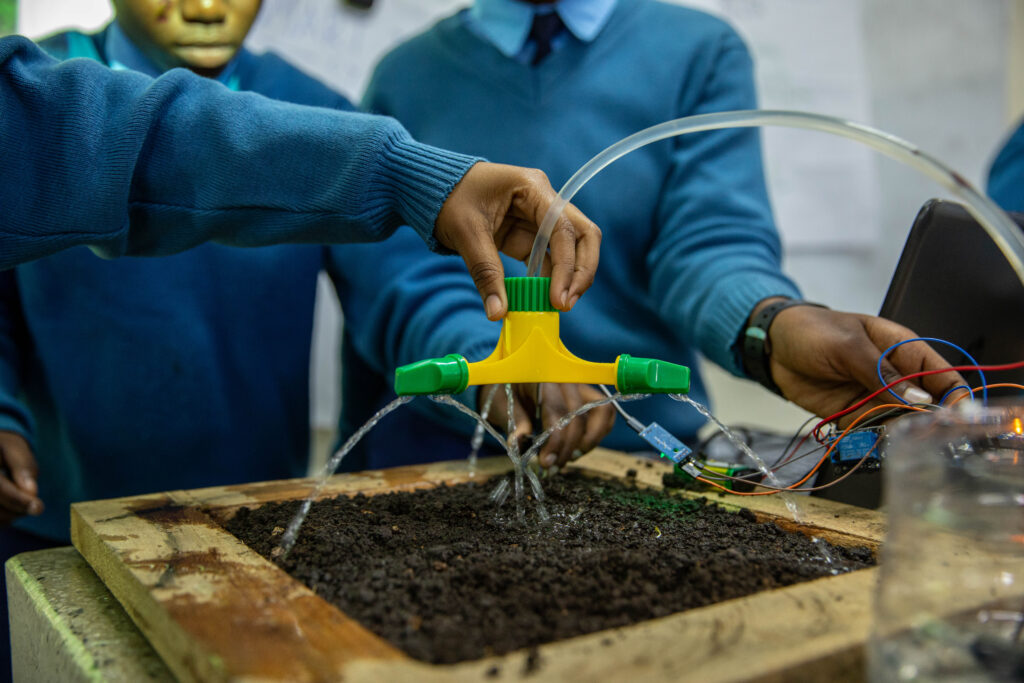
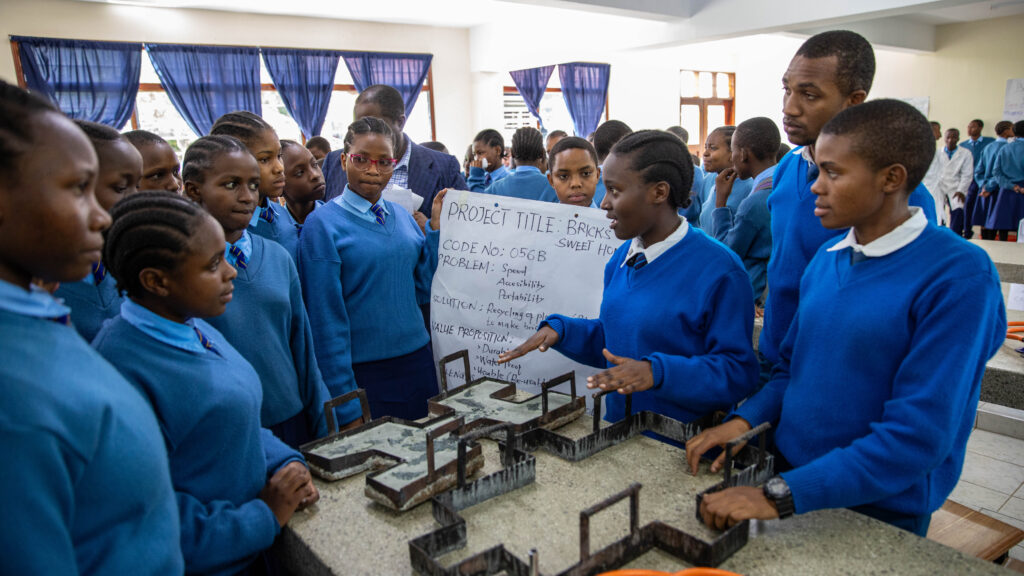
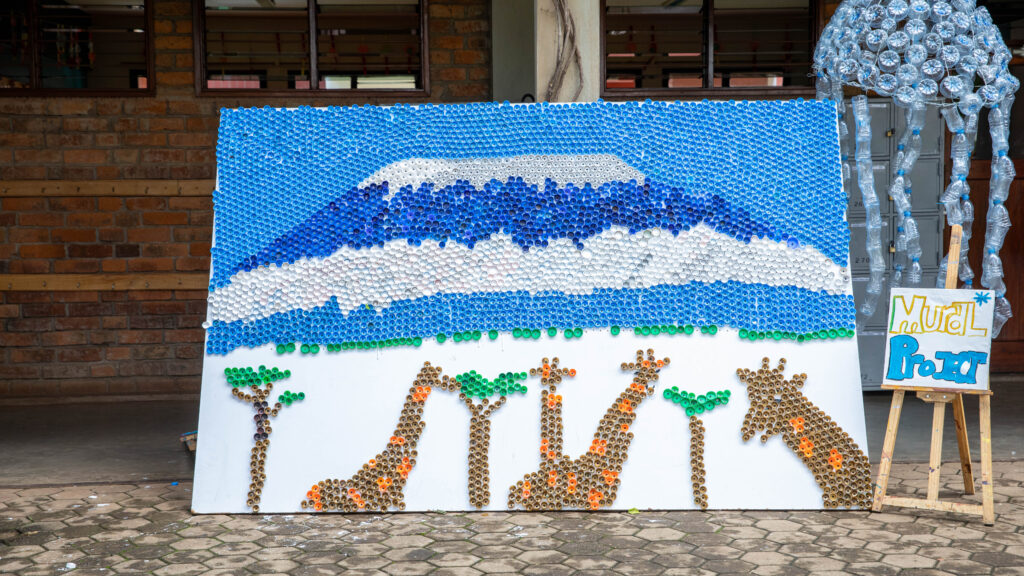
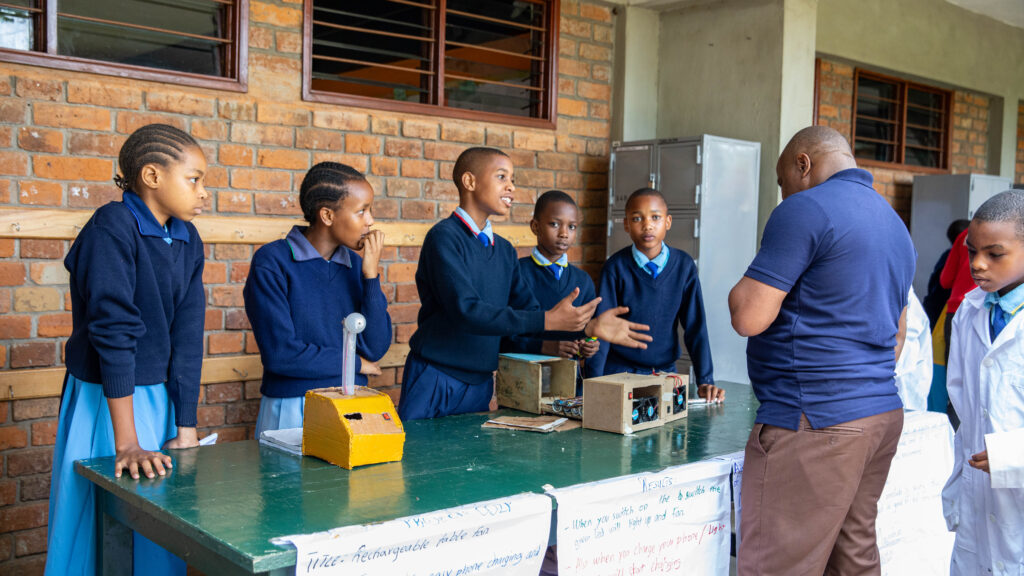
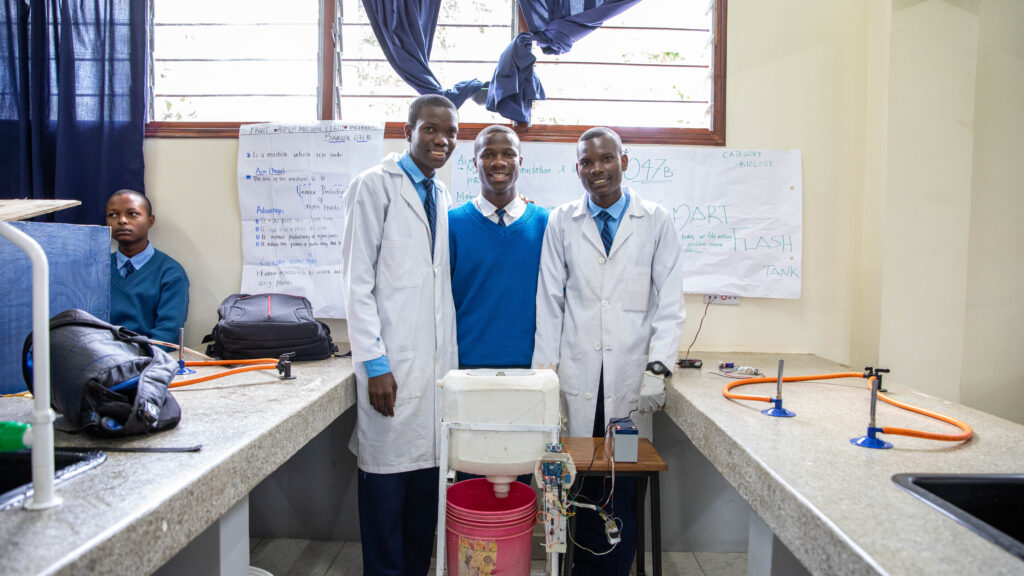

In Tanzania, access to education has traditionally favoured boys. Unlike their female counterparts, boys would get preference for school enrolment, be excused from domestic chores at home, and consequently have improved chances of success later in life. While the narrative is shifting slowly, St Jude's is at the forefront of ensuring equal access to education for all, regardless of gender.
Over the last 23 years of St Jude's, there have been important milestones and numbers that reflect the commitment to equal access to education. Here are some of them:
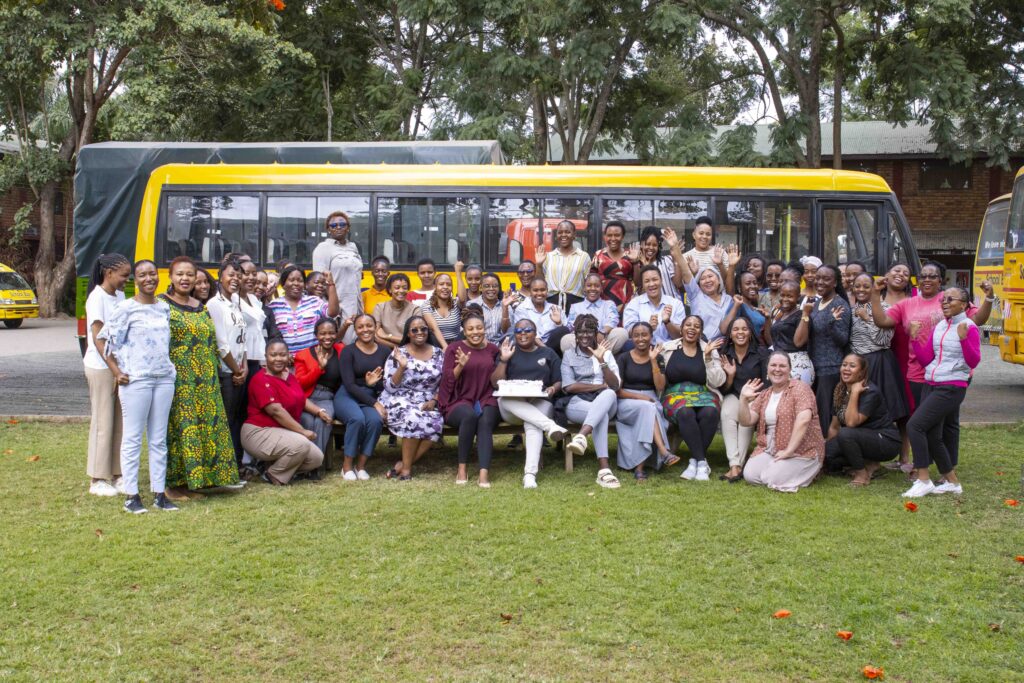
Every year, St Jude’s conducts health checks for its 1,800 students across three campuses to identify any health concerns, monitor existing conditions, and tailor support for those with specific needs. This year’s Health Check team included some familiar faces, with three St Jude’s alumni returning to give back to the very place where their journeys began.
For Nadia, Class of 2019, coming back was a full-circle moment. “It feels special to come back and contribute to the same process that helped me so much,” she says. “I remember the medical professionals from my own health checks when I was a student, and thinking ‘I’d love to do that one day!”
Nadia joined St Jude’s as a Standard 1 student in 2007 and is now in her fifth and final year of a Bachelor of Science in Nursing, which consists of a year doing practical internship at Mount Meru Hospital, not far from St Jude’s Sisia Campus. Despite her demanding schedule, Nadia sought special permission to take two weeks of leave from her program to participate in the health checks, knowing it was an opportunity she couldn’t let pass by.
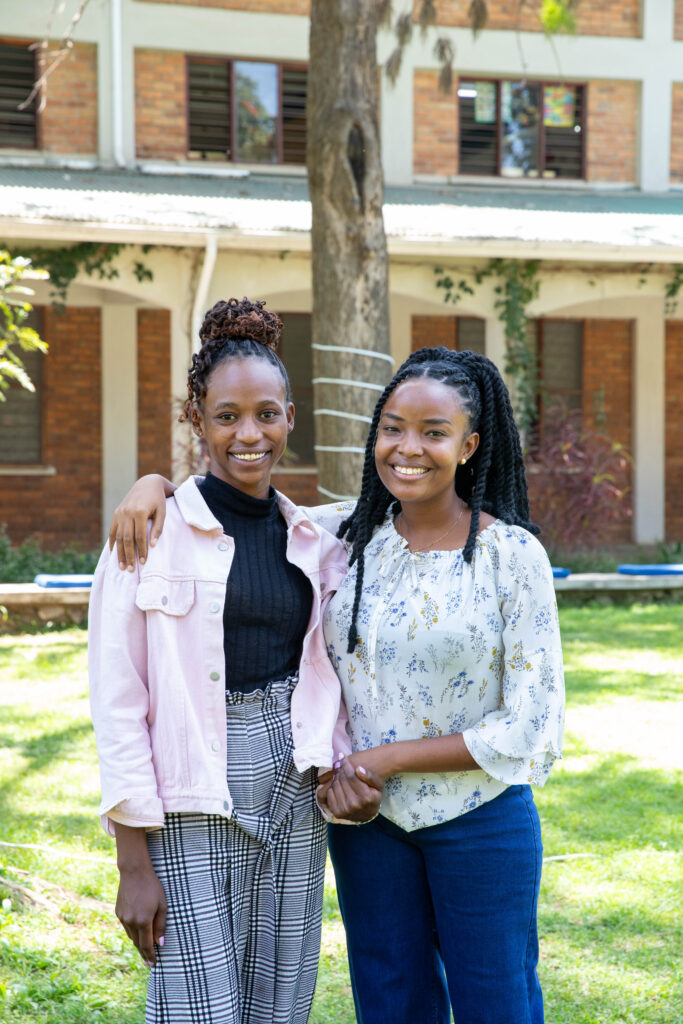
“My internship year is supposed to be uninterrupted, but I was fortunate the hospital team was very supportive and granted me the leave so I could be here,” notes Nadia, who says her passion for pursuing a career in healthcare was forged during her time at St Jude’s.
“I’ve always dreamed of returning to give back, and it’s everything I hoped it would be. I’ve seen students who were in Form 1 when I was in Form 6 who said, ‘Oh Nadia, look at you now!’ and I told them, ‘Everything is possible. You just have to believe in it,’ she says.
Returning alongside Nadia was Erneus, Class of 2020, who vividly recalls his first health check after joining St Jude’s in 2018 as a Form 5 student. “I was so happy as I had never had a check-up like that before. We were advised on how to improve our health, and it was crucial for me. It’s very fulfilling to now be a part of something that helped me in the past.”
After graduating with a degree in Biotechnology and Public Health in 2024, Erneus felt there was no better way to kickstart his career than applying his skills at the place that helped shape his future.
“It’s my first time volunteering in the Health Check team, and I’m learning a lot. It is so rewarding to see the students’ reactions and learn from an international cohort of experts,” says Erneus.
“I have been working in the vision team, helping assess students’ eyesight to identify any issues that could affect their learning ability. If not detected, these issues can grow and start to impact a student’s education, which is why the health checks are so important,” he says.
Like Erneus and Nadia, Winniefreda, from the Class of 2019, also volunteered in the vision team this year. She describes her return to St Jude’s as a homecoming. “I spent so much of my life here,” she says. “Being back feels like coming home. St Jude’s is where I learned and grew, and now I’m able to return the care that I once received.”
In 2023, Winniefreda completed her Bachelor of Nursing and Midwifery. She now works at a hospital in Arusha and doubles as a private nurse, providing home care as part of the government’s clinical nursing program.
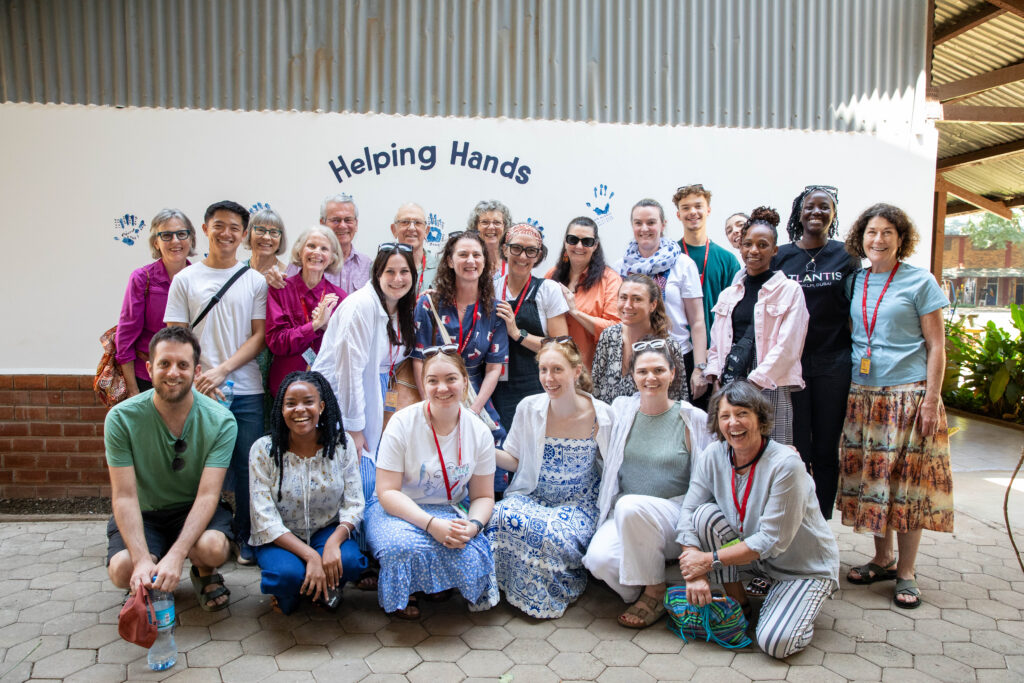
“It’s incredible to see how much the school has grown. What excites me is knowing that we’re helping students who could very well be the next generation of health professionals. Some of the students we helped this year could be in our position in the future. That’s the power of St Jude’s. It always comes back around,” she says.
Nadia, Winniefreda, and Erneus are prime examples of how a St Jude’s education creates a ripple effect, coming full circle to give back to their communities and inspire future generations.
It's 26th October 2024, St Jude’s Smith Campus. A sense of celebration fills the air, and despite the morning chill and cloudy weather the school is abuzz with excitement. In the school arena, students in their immaculate uniforms and blue and yellow graduate ribbons pose for photos with their families, teachers, and sponsors.
Today marks an important day for St Jude’s as 235 Form 4 students, the school’s largest class to date, graduate from their Ordinary Level studies.
Tanzania's education system has three key stages: seven years of primary school from Standard 1 to 7, then four years of secondary school from Forms 1 to 4 in Ordinary Level (O Level) studies, and finally, two years of Advanced Level (A Level) studies at Forms 5 and 6. Schools typically organise a graduation ceremony at the end of each stage, as do St Jude's.
"Attending a graduation ceremony at St Jude's is an experience like no other," says Mr Sangito, St Jude's Assistant Headmaster and a senior event organiser. "It's one of those events that brings together the entire St Jude's community of students, parents, staff, and supporters in celebration," he adds.
But while each graduation is significant and equally celebrated with enthusiasm by the St Jude's community, the Form 4 graduation feels particularly special. At this stage, graduates choose to continue with the final two years of A Levels and specialise in specific subjects or they may pursue an accelerated path to a career by completing a diploma or certificate at college.
"Starting A Level feels like opening a new chapter in my academic journey," says Lilian, St Jude's Form 4 graduate and a host of Inside St Jude's podcast. "I'll be moving to a new campus with new teachers and new uniforms. Plus, I'll be studying more science subjects which is more fitting for my career goals in computer science," she adds.
Meanwhile, Fatuma, another St Jude's graduate and Lilian's co-host at Inside St Jude's podcast, is going for a different route. She is one of the highly motivated graduates who are opting to apply to Beyond St Jude’s Alternative Pathways Program (APP). The APP was established in 2020 for students who decide to pursue a diploma or certificate in college, in lieu of the traditional St Jude’s A Level pathway.
"That's why this graduation means so much," reflects Fatuma. "It's an opportunity to begin exploring my career path in a new setting," she adds.
At St Jude's, 96% of students who begin secondary school education complete Form 4. The school's holistic approach to education ensures students excel beyond academics by developing useful extracurricular skills in sport, art, IT, and public speaking. As a result, they graduate with practical skills that they can apply immediately to positively impact their communities.
"One of our fellow students represented the country at the 2023 Commonwealth of Nations games in athletics while a team from St Jude's emerged the first runner-up at the Tanzania National Debate Championship (TNDC) and East African Schools Debate Championship (EASDC)," said Rahel a Form 4 graduate in the Farewell speech during the ceremony.
In the coming weeks, the graduates will sit for their Certificate of Secondary Education Examination (CSEE), a national exam organised by the National Examination Council of Tanzania. In Tanzania, only those who pass the CSEE qualify to proceed to A Levels. Passing these exams also improves college enrolment prospects for students pursuing a diploma course.
Whichever path they choose, a St Jude's scholarship is available to support successful graduates in their next academic step.
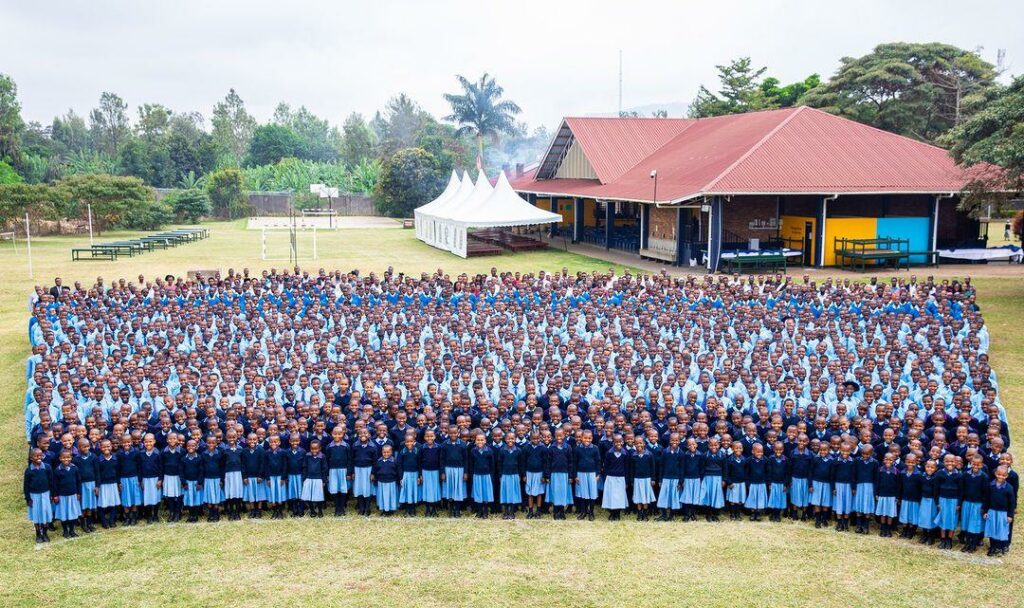
Once a year, the entire St Jude's community of 1,800 students and more than 300 staff gathers on one campus to celebrate St Jude's Day. It is one of the biggest and most anticipated events on the school calendar.
There is a lot to explore about St Jude's Day, so here is a quick look at how we celebrate.
What is St Jude's Day?
St Jude's Day is a special day to honour Saint Jude, the patron saint of desperate and lost causes for whom the school is named.
How do we celebrate it?
Over the years, it has been a tradition to celebrate this day as a community. St Jude’s campuses alternate hosting the celebrations; this year was the Sisia Campus’ turn.
What happens on St Jude's Day?
The day's first activity is taking the annual (whole) school photo. A huge logistical effort, everybody assembles on one of the sports fields to pose for a photo, the students lining up from youngest to oldest. A Thanksgiving mass follows, where students and staff present gifts that will later be distributed to the less fortunate in our local community. Afterward, the school enjoys a community lunch, followed by entertainment and special recognition for staff through the St Jude's Spirit program.
When is the next St Jude's Day?
St Jude's Day is observed annually on 28th October. Next year, St Jude's Day will fall on a Tuesday and be hosted by the Smith Campus. It's a perfect day to visit the school and experience the spirit of
St Jude firsthand from our community.